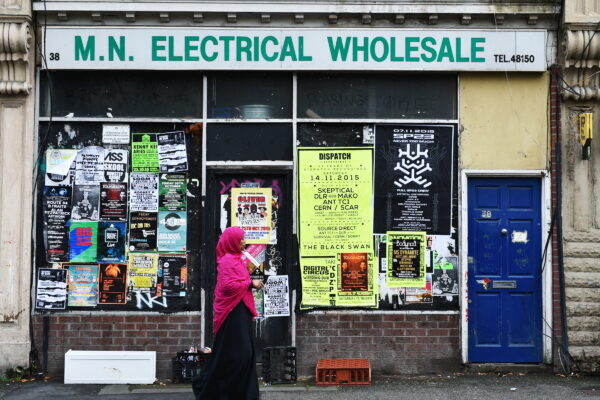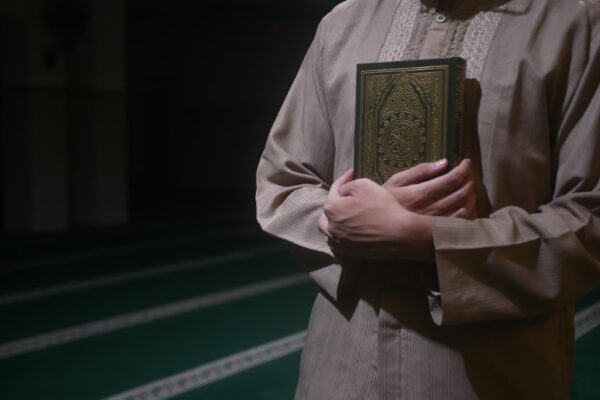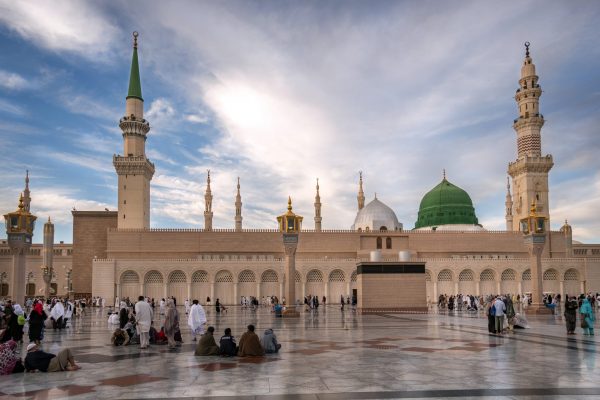Whilst many praised Mandla Mandela for speaking up for Palestine, others were not impressed by his Western Sahara comments.
Whilst many praised Mandla Mandela for speaking up for Palestine, others were not impressed by his Western Sahara comments.
On 13 January, the seventh edition of the African Nations Championship commenced in Algeria. At the opening ceremony, Mandela’s grandson commented on the disputed region of Western Sahara located northwest of Africa, which Morocco deemed “provocative acts”.
In his speech, Mandela called on people to “free the last colony of Africa” and “fight to free Western Sahara from oppression”. Algeria invited Mandla Mandela as a guest at the CHAN opening ceremony earlier this month in the newly built Nelson Mandela Stadium in Algiers.
Following Mandela’s statement, Morocco’s football federation wrote to the Confederation of African Football for violating CAF’s rules on political involvement in football leading it to open an investigation into the issue.
Last week, Raja Casablanca fans mocked and dubbed him “little Mandela” in response to his statement. However, Mandela’s grandson said he was unfazed. Moroccan fans also displayed a banner that read, “the only colony left in Africa is Orania”, referring to an enclosed town in the Northern Cape province where only Afrikaners live with their own currency.
During the CHAN opening ceremony, a video emerged showing Algerian fans chanting racist slurs and calling Moroccan fans “animals”.
Morocco is the only African country to have pulled out of the championship. In a press release, the Royal Moroccan Football Federation (FRMF) declared, “the Moroccan football team is not able to travel to Constantine, Algeria, as the permission for Royal Air Maroc (RAM) flight, the official carrier of the Moroccan national team, from Rabat to Constantine has not been confirmed.”
In 2021, Algeria cut ties with Morocco and closed its airspace, accusing the Moroccan government of interfering in its domestic affairs.
Nevertheless, tensions between the two North African countries began when Algeria backed the Polisario Front calling for an Independent Sahara. Today, the Saharawi Arab Democratic Republic (SARD) controls 20% of the disputed region, while Morocco controls 80%.
Algeria felt more isolated diplomatically when Spain reaffirmed its support for Moroccos’s autonomy over Western Sahara in March 2021. Relations between the two countries intensified when in July 2021, Moroccan Ambassador to the United Nations Omar Hilale expressed his support for the self-determination of the Kabylie region after Algeria’s open support of the SARD.
Despite Morocco’s several reconciliation attempts and calls for dialogue and the border opening, Algeria is not inclined to demonstrate any willingness or political interest in reconciliation. Indeed, as tensions increasingly amplified, King Mohammed VI pushed for a new dynamic in his recent throne speech.
Last Thursday, Algeria’s President Abdelmadjid Tebboune chaired the opening ceremony of the work of the meeting Government-walis. In a speech, he said, “We will not give up the Saharawi cause, whatever the price.”
“For us, it is a question of principle. We will fight with all our strength for these causes, the Saharawi cause, the Palestinian cause and all just causes worldwide. This is the policy of our country,” he added.
Tunisia is the second North African country to break ties with Morocco by inviting Polisario Front leader Brahim Ghali to Tunis in August 2022. It’s a new move from Tunisia, as the government has maintained a neutral stance for decades. With Tunisia hosting Ghali at the opening session of the eighth Tokyo International Conference on African Development (TICAD), experts say Tunisia seems now to grow closer to Algeria.
Morocco refused to attend TICAD and recalled its ambassador to Tunisia. As a result, Tunisia responded by recalling its Tunisian envoy from Rabat for consultations.
Critics in Tunisia, following the move, have slammed President Saied’s decision and described it as “dangerously unprecedented” and “politically stupid.”
While Rabat deemed the moved a “stab in the back”, Morocco’s King Mohammed VI reacted to Tunisia’s President Kais Saied’s meeting with Ghali in Tunis and said, “The Sahara issue is the prism through which Morocco views its international environment.” The King also urged his partners to provide “unequivocal support” to Morocco.
The Japanese government, which does not recognise the SARD, confirmed that the participation of the Polisario Front leader Ghali in TICAD was “a surprise fait accompli.”
Guinea Bissau’s President Umaro Sissoco Embalo reportedly left the conference to protest against Ghali’s presence. At the same time, Senegal’s Macky Sall said in his opening speech that he regretted the meeting being held without Morocco, describing it as a “prominent member of the African Union.”
Senegalese President Macky Sall regretted in his opening ceremony speech at the meeting that the conference was being held without Morocco, a “prominent member of the African Union.”
Although the African Union recognises Western Sahara as a member, African states are split over both the Polisario and the territory’s independence.
In October 2022, South Africa’s President, Cyril Ramaphosa, hosted President Brahim Ghali of SADR and confirmed the country’s support of an independent Sahara.
He declared that South Africa enjoys “fraternal bilateral relations anchored not only on our shared history of struggle but also on our common vision for the self-determination of the people of Western Sahara.”
Ghali also sparked anger in Morocco in April 2021 by seeking medical treatment in Spain after contracting COVID-19, which resulted in a one-year diplomatic breakdown between Morocco and Spain. The row ended when the Spanish government decided to back the Kingdom’s Western Sahara autonomy plan.
The Western Sahara Crisis Explained
To put things in context, Western Sahara was under Spanish rule from 1884 to 1975 until Spain left Morocco and Mauritania to administrate the former Spanish colony. In the same year, the nationalist Polisario Front established the SADR.
In 1979, Mauritania gave up on its will to jointly administrate the territory with Morocco after a series of clashes. However, the fight between Morocco and the Polisario Front continued until a ceasefire was reached in 1991. Unfortunately, violent protests resumed in 2011, resulting in hundreds of deaths.
Although the UN recognises the Polisario Front, Morocco enjoys the support of 65 UN member states. In 2020, the US supported Morocco’s sovereignty over Western Sahara through a trade-off for Morocco to recognise Israel.





